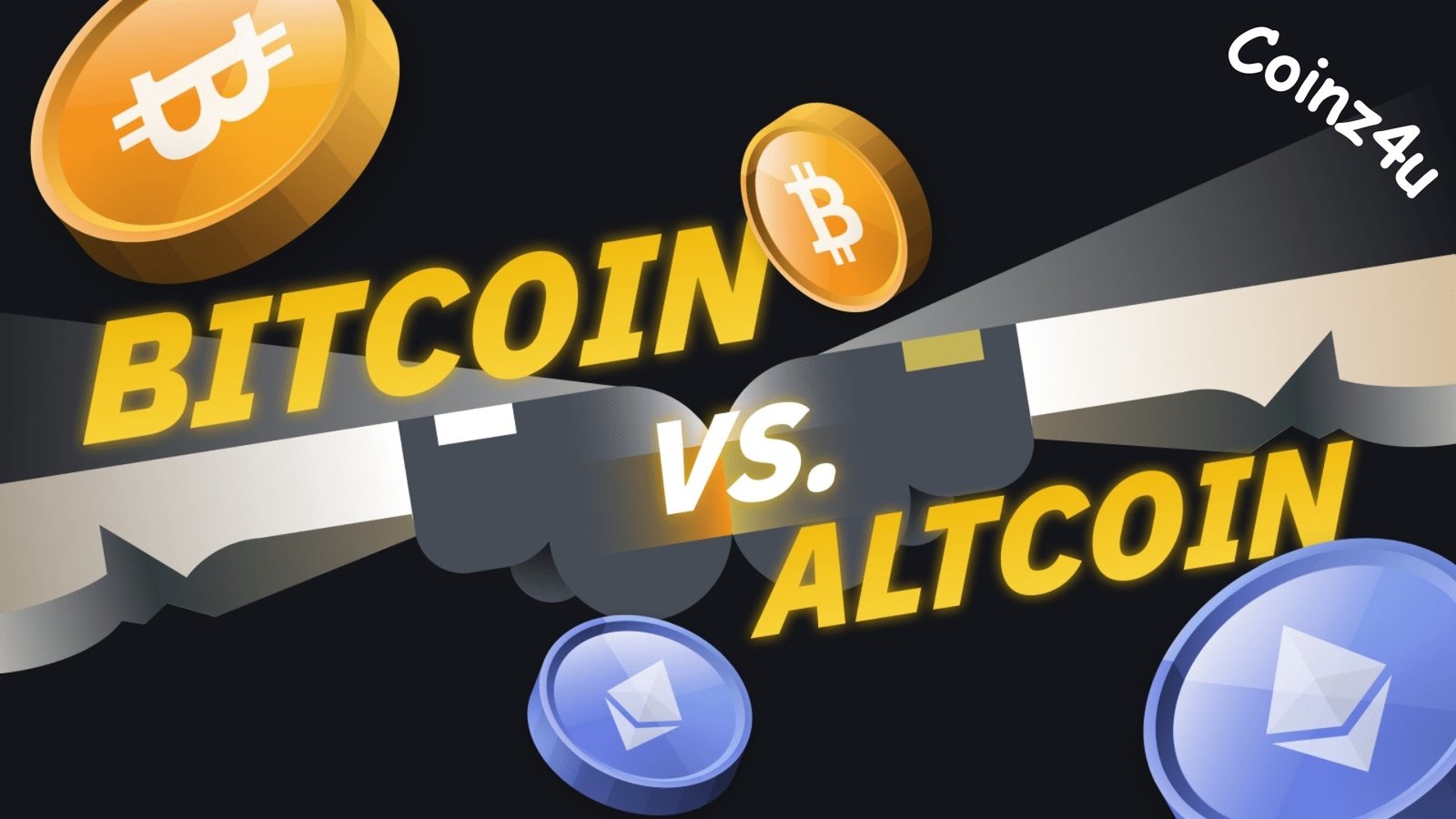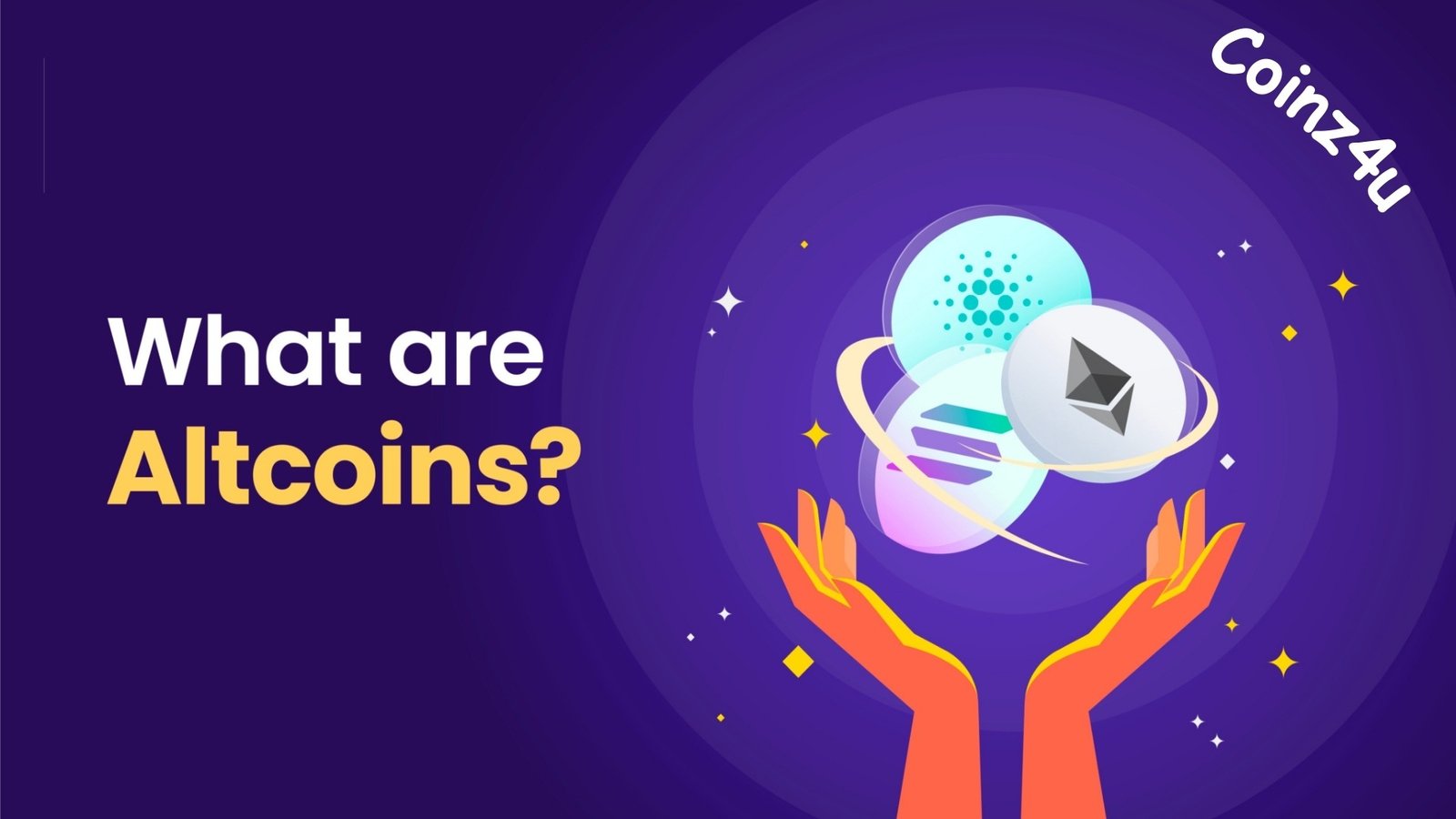What Are Altcoins? An introduction to Cryptocurrencies Beyond Bitcoin. The word “altcoin” is a blend of “alt,” referring to an alternative, and “coin,” which means cryptocurrency. In other words, apart from Bitcoin, any other coin is known as an altcoin. Blockchain technology was initially introduced to the public by Bitcoin, a cryptocurrency that emerged following the global financial crisis in 2008-2009.
By becoming the absolute “gold standard” of digital currencies, Bitcoin has triggered a financial revolution. Since it was the first to market, blockchain-based cryptocurrencies have become the de facto standard. Due to Bitcoin’s limitations, other cryptocurrencies have been created which we’ll get to in a minute. In this case, is Ethereum a cryptocurrency?
Examples of second and third-generation blockchain-based cryptocurrencies that originated after altcoins are Litecoin (LTC) ($82.98) and Ether (ETH) ($3,157). The cost of altcoins (alternative cryptocurrencies) is usually presented as BTC, although Bitcoin is sometimes given as the equivalent of fiat currencies like dollars, yuan, and euros. If you ask yourself:‘’How can I buy or sell altcoins?’ Coinz4u article is here to assist you. What makes Bitcoin different from other cryptocurrencies? Can altcoins outstrip Bitcoin?
Types of Altcoins
Altcoins can be categorized as proof-of-work (PoW) and proof-of-stake(PoS) altcoins (based on consensus mechanisms), stablecoins, and decentralized finance (DeFi) altcoins.
PoW and PoS altcoins
Bitcoin network uses the Proof-of-Work consensus protocol to verify and record transactions. Other POW altcoins are LTC, Bitcoin Cash (BCH), and Zcash (ZEC). In other words, validators are the ones who confirm transactions, while miners only compete for the chance to be the next lucky winner, as the PoS structure implies. On account of the heavy energy usage of the PoW system, Ethereum is moving towards the PoS agreement. The list also includes proof-of-stake altcoins such as Tron, TRX at $0.1204, and Cosmos, ATOM at $8.11.
Stablecoins
A stablecoin is a cryptocurrency whose value is pegged to a fiat currency, such as the US dollar. One stablecoin equals the same value as a single unit of the pegged fiat currency. One of such stablecoins is Tether USDT, which, for example, equals 1.00 USD. To make sure they are truly stable, the issuer of the stablecoin will typically have in reserve cash or other assets proportional to all the coins in circulation. Therefore, the holders will even get their money back if the currency goes bankrupt or suffers from other problems.
Defi altcoins
DeFi stablecoins utilize the blockchain to allow users to lend and borrow their crypto-asset holdings, which means they, too, can earn passive income. A few examples of DeFi altcoins to get are Compound COMP ($55.56), Synthetix SNX ($2.82), and Uniswap UNI ($7.62).
Difference Between Bitcoin and Altcoins

While Bitcoin failed to stand the test of time, many altcoins approached its problems and deficiencies by employing their functionality on top of the latter. The following section describes the differences between Bitcoin and several ‘altcoins’ like LTC (Litecoin), ETH (Ethereum), BCH (Bitcoin Cash), and ZEC (Zcash), namely, rental, partnership, and decentralization, respectively.
Litecoin vs. Bitcoin
On October 7, 2011, Litecoin came into being to be better than Bitcoin. Bitcoin and Litecoin are similar in numerous ways but have substantial differences. LTC thought that by executing more transactions, speed would be enhanced, and as a result, blockchain time was reduced to 2.5 minutes from 10. Miners solved but did not select the blockchain, such orphaned blocks are taken away for shorter block time. Because of overloaded miners, Litecoin stumbled onto the scalability issue in December 2017.
Litecoin integrated SegWit, Nimble Wimble, and the Lightning Network to clear the overclouding problem. Since Litecoin used a different approach from Bitcoin, it could deploy more computing power by the mining computer’s memory instead of the traditional code. While Bitcoin makes use of SHA-256, Litecoin goes for Scrypt. Moreover, LTC is on 84 million coins compared to 21 million for Bitcoin. Although only two units are required by Litecoin for equal exchange, instead of half a unit in Bitcoin, it looks more valuable and neoteric easily grasped by the under-educated ones.
Ethereum vs. Bitcoin
With regards to the operation of Ethereum (Mainnet), Bitcoin is something different. Many people often relate Ethereum to Bitcoin, but the truth is that Ethereum is a Virtual Machine that utilizes the blockchain concept through its programmable feature, unlike Bitcoin, which is non-programmable. Ethereum’s decentralized computer runs software and scripts from every corner of the network.
The Ethereum smart contracts are the base of DApps. They differ a lot from Bitcoin technology. Blocks take 14 seconds to solve, which is a rare case. Bitcoin’s key features include contracts, scaling, supply, PoS change, innovation, and network worth.
Bitcoin Cash vs. Bitcoin
Bitcoin Cash branched off from Bitcoin on August 1, 2017. It resolved the scaling concerns that Bitcoin had. The block size is now 8 MB, which means transactions can be processed faster. Transaction fees are lower. Some believe Bitcoin Cash is better for transactions than Bitcoin.
ZCash vs. Bitcoin
Zcash was a protocol born on October 28, 2016, that solves the problem of the long block time of 10 minutes proposed by Satoshi Nakamoto. It has been reduced to 2.5 minutes. Zcash is a project derived from Bitcoin’s “pseudonymity” feature approach where the user’s identity is not tied to a specific address but can still be made public. A block size of 2 MB, which is twice the BTC size, was used by ZEC to ensure there is enough space on the chain for the extra data of its more complex transactions.
How Do I Buy Altcoins?

For instance, you might think, Should I put my money into altcoins? If you need detailed instructions on the procedure, please keep reading the points below.
Choose your altcoin portfolio percentage.
Your investment method in altcoins, you should choose it not to be a risk for you or if you are a risk-seeker. According to how much risk you plan to take, as well as the expected return, you may choose what percentage of altcoins you want to invest in through altcoins.
Research altcoins in which to invest
Begin trading altcoins by checking each project’s website, social media accounts, and development team to find the best altcoins. While this is true, it will allow you to authenticate the project and, therefore, possibly invest in it. Before holding altcoins, you should check if your wallet can support them. If it does not, it may be more preferable to use another crypto wallet.
Choose an exchange and find a currency pair.
By chance, you may be required first to buy Bitcoin, as some exchanges that do not support fiat payments for altcoins ask for this action. The next step after you obtain BTC is to pick a marketplace that will accept your cryptocurrency in exchange for Bitcoin. The proper exchange to go for is next; after making such a choice, you enroll. Registration will be followed by a moment when you need to transfer some of your Bitcoin to the exchange platform. Be aware that you pay with Bitcoin in your altcoin transactions with the exchange you have chosen.
The selling strategy should be pursued if your answers to the first and second questions were “yes” and the answer to the third was “no.” However, even the possibility of being cheated cannot be ruled out if the chosen exchange is not wary enough. Yet, you can also join the trading community depending on their response to the incident, the thoroughness of their investigation, and the security measures they put in place.
Trade BTC for your favorite altcoin
You can buy altcoins once your cash or BTC arrives in your exchange account. Order your favorite altcoin when you are prepared to trade BTC for altcoins.
Store your altcoins in a crypto wallet.
Let your altcoins remain on the exchange after the transaction is approved. If you want to keep your cryptocurrency long-term, storing it in a wallet instead of an exchange is the safest way. You can choose from many cryptocurrency wallets, such as hot, cold, web, mobile, and desktop.
What is Altcoin Season?
Altcoin season becomes real when thousands of altcoins with higher costs against. Bitcoin and fiat currencies, such as the USD, keep rising. In 2017, Bitcoin was at the peak of its journey when many new currencies were founded using Ethereum’s innovative contract feature, thus resulting in the first incidence of an altcoin season. Crypto investors who bought Bitcoin ever since its price started climbing have found this venture to be a money-making business. On the other hand, altcoin season occurs when some investors who want to be fast millionaires enter the cryptocurrency market.
The coming cryptocurrency season cannot be forecasted. By observing market cues, the Blockchain Center offers a unique tool called the Altcoin Season Index, which indicates whether. Bitcoin or altcoins are the most popular cryptocurrencies. Besides meme coins and dogecoin being famous, even an altcoin cycle emerged due. The nonfungible tokens and meme coins such as Shiba Inu and Dogecoin.
Future of Altcoins
Investing in alternative cryptocurrencies is an inexpensive scheme to widen the investment beyond Bitcoin. Besides, Investors can also be involved in governance decisions of the project. Cryptocurrencies have issued multiple coin alternatives that possess great specialization. But don’t fret! Only altcoins with a real-world application can overcome adversity and rise to the top industry. The other problem in currency investment is the wind of regulation that crypto is deficient in. Nevertheless, with the growth of the Bitcoin industry, regulatory issues will be alleviated.
[sp_easyaccordion id=”3915″]









